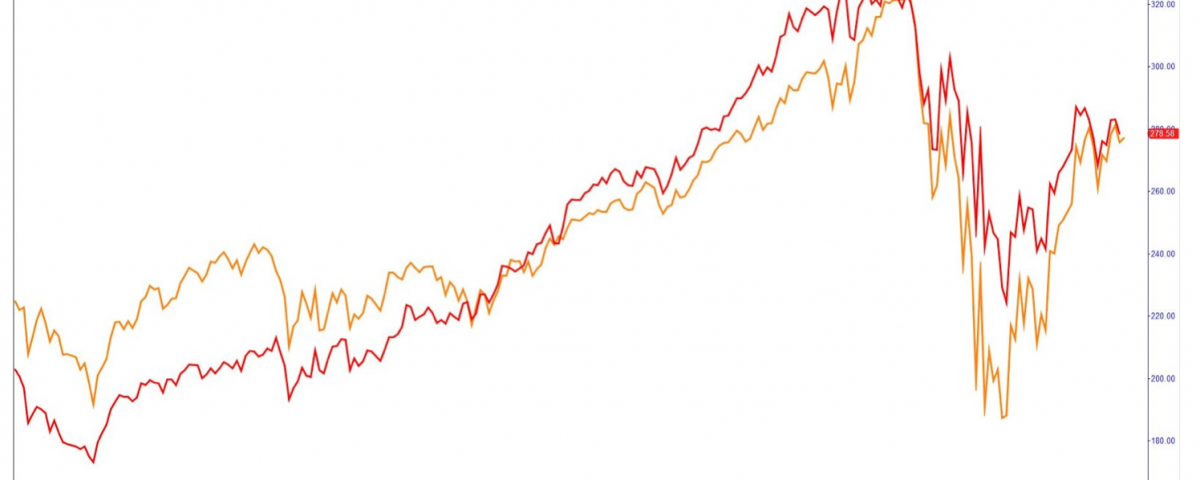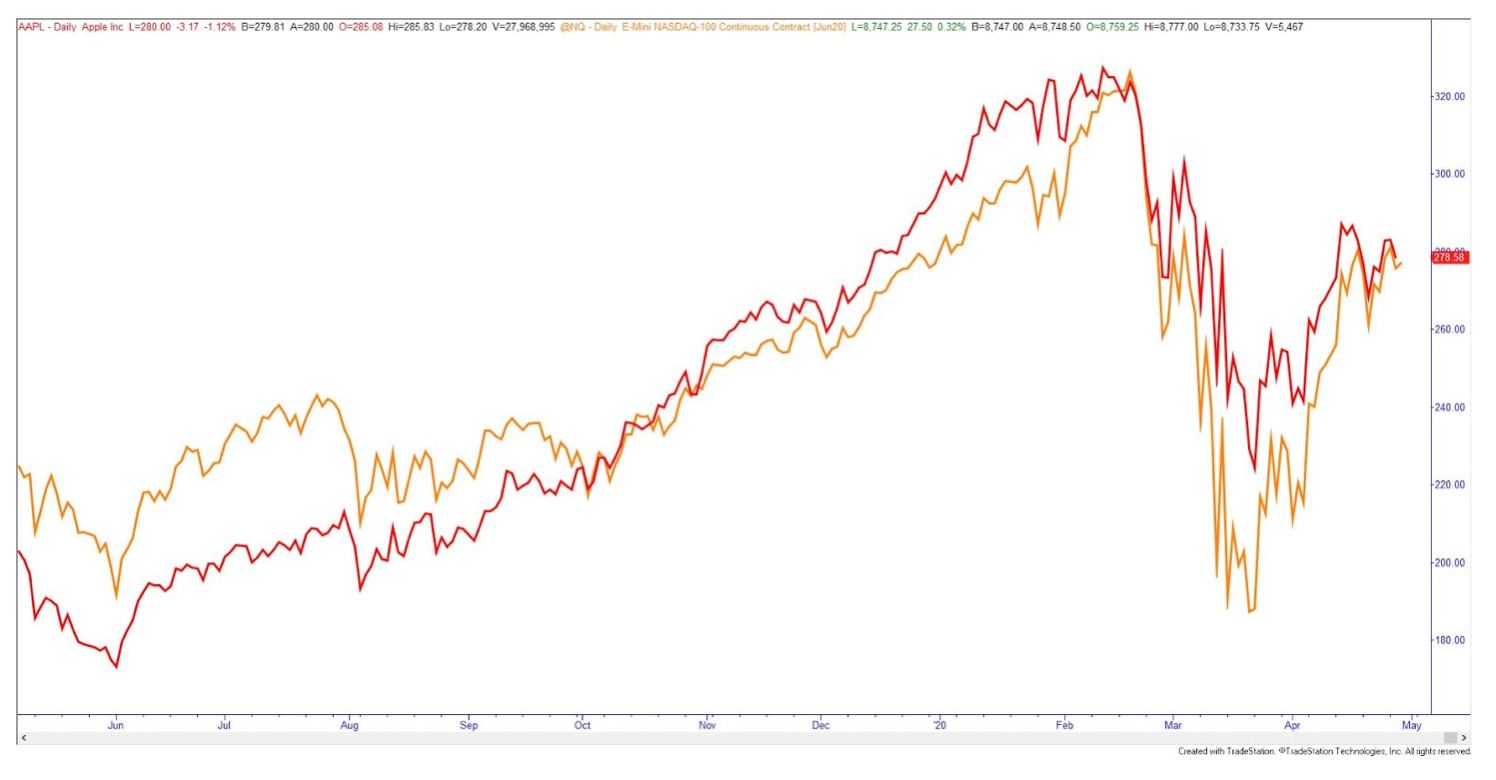How does Apple Shares Influence the Nasdaq Futures?

In the last 20 years, one company has not only revolutionized how we buy, store and listen to music but has also been one of the most innovative in showing us new ways we communicate and interact with our cell phones. And talk about customer loyalty? There are only a handful of companies throughout history that can claim such fierce devotion to their products. We are, of course, referring to Apple Corporation.
So why am I writing about Apple in an article dedicated to futures trading? To some of you, it may be already evident that Apple influences the movement of not only the Nasdaq but the broader market in general, and for the rest of you, this piece may elucidate you as to why this phenomenon exists.
To understand this dynamic, let’s start with the basics on how the stock indexes are constructed. The four major stock indexes are the Nasdaq 100, S&P 500, Dow Jones Industrial Average and the Russell 2,000 small cap Index. Coincidentally, Apple is a big component of the first three of these indexes.
Indexes are the aggregation of all the stocks that are included in an index. These stocks are then added together based on their weighting and divided by a specific diviser to end up with a number (the Index price). So as an example, the Nasdaq 100 Index is taking the 100 largest companies in the Nasdaq market to assemble this particular Index. Most of the major equity indexes are cap weighted with the only exception being the Dow Jones Industrial average, which is price weighted. The Nasdaq, for example, is a Cap weighted index. Therefore, the bigger the stock’s market capitalization, the bigger the influence that stock will have on the price movement of its corresponding index. When referring to the market cap of a company this is simply the price of the stock multiplied by the shares outstanding. As an example of market capitalization, let’s say a company has 100 million shares outstanding and they’re currently priced at $10.00 per share. The stock’s market cap is 1 billion.
The meteoric rise of Apple since 2009 has vaulted it to being one of the most valuable (in terms of market capitalization) companies in the world, surpassing Exxon Mobil and Microsoft which previously held that distinction. This, in turn, makes it almost 20% of the weighting of the Nasdaq 100 Index. As you might have guessed, this fact makes it one of the most influential stocks in the Nasdaq and S&P 500 index. This pull was clearly felt immediately after Apple guided lower at the time of this writing. This also has had a huge ripple effect across the currencies and other related markets this Wednesday afternoon.
To illustrate the correlation between Apple shares and the Nasdaq 100 E-mini futures, I have superimposed the chart of Apple (the red line) on top of that of the Nasdaq 100 futures (orange line). In it we see the strong correlation between the two.
 The question for traders going forward is if the inextricable link between Apple and the markets will break anytime soon. The answer is, probably not, and if that’s the case, how does this determine the outlook for the overall stock market going forward?
The question for traders going forward is if the inextricable link between Apple and the markets will break anytime soon. The answer is, probably not, and if that’s the case, how does this determine the outlook for the overall stock market going forward?
Apple shares have rallied along with the board market recently and during that rally have created accumulation levels that have not been tested. There are also several gaps that were created after the pandemic selloff. We will be looking at some of these levels for guidance as to where to be buying both the stock and the Nasdaq e-mini futures. There may also be possible shorting opportunities at higher prices in upcoming weeks at fresh distribution levels. So, for now, Apple will continue to be a leadership stock and we must keep an eye on it as the distribution and accumulation levels that form will help us gauge where it might reverse in the near term. One caveat: never let a great company (which undeniably Apple is), or the affinity for their products, cloud your judgment as to when to short the stock or take profits when you have them. Profits, after all, are our main objective when trading any markets. To that end, avoid falling in love with a company or its products if you want to produce long term consistent profits.
Until next time, I hope everyone has a wonderful week.
Gabe
